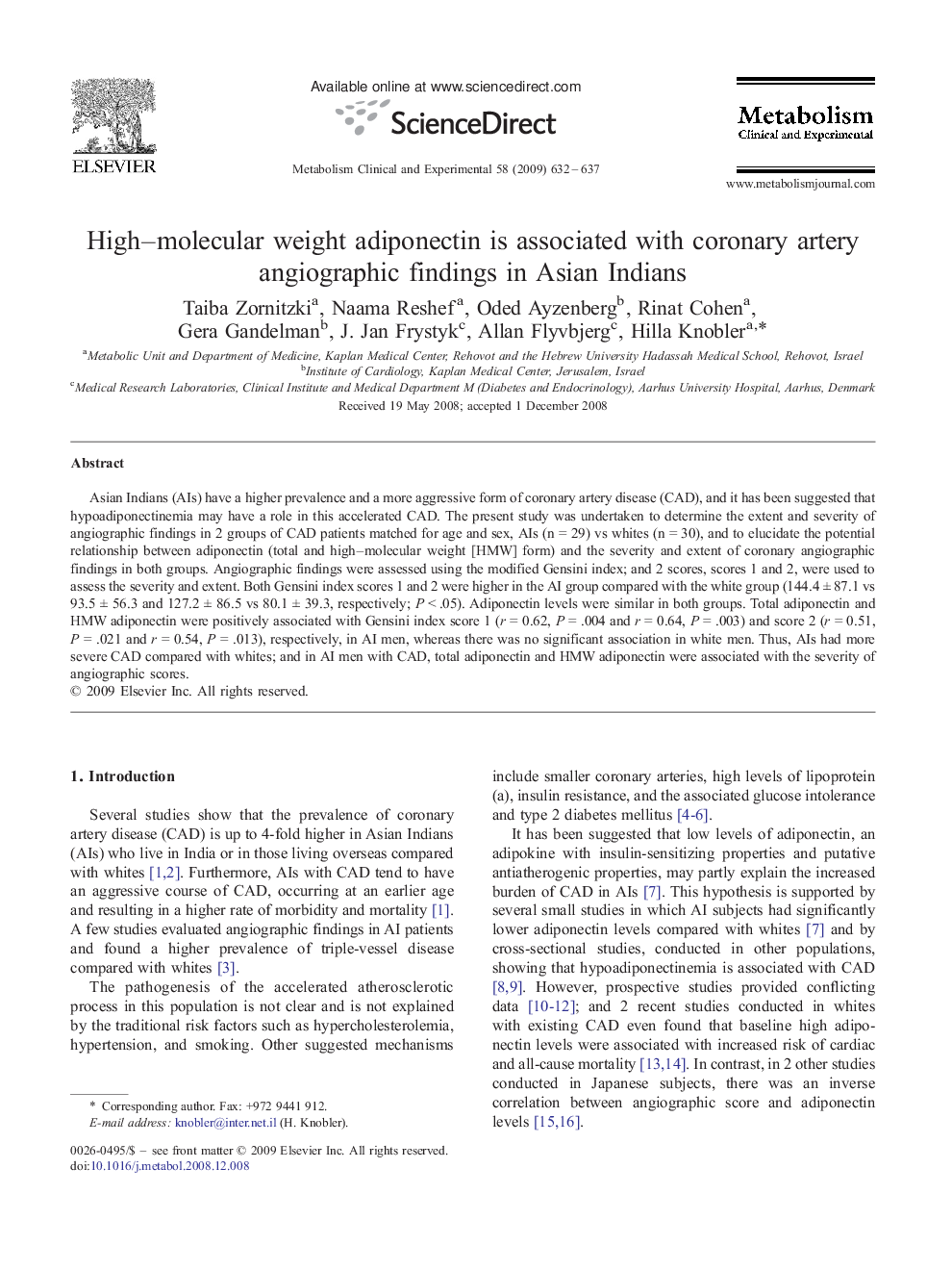| Article ID | Journal | Published Year | Pages | File Type |
|---|---|---|---|---|
| 2807320 | Metabolism | 2009 | 6 Pages |
Abstract
Asian Indians (AIs) have a higher prevalence and a more aggressive form of coronary artery disease (CAD), and it has been suggested that hypoadiponectinemia may have a role in this accelerated CAD. The present study was undertaken to determine the extent and severity of angiographic findings in 2 groups of CAD patients matched for age and sex, AIs (n = 29) vs whites (n = 30), and to elucidate the potential relationship between adiponectin (total and high-molecular weight [HMW] form) and the severity and extent of coronary angiographic findings in both groups. Angiographic findings were assessed using the modified Gensini index; and 2 scores, scores 1 and 2, were used to assess the severity and extent. Both Gensini index scores 1 and 2 were higher in the AI group compared with the white group (144.4 ± 87.1 vs 93.5 ± 56.3 and 127.2 ± 86.5 vs 80.1 ± 39.3, respectively; P < .05). Adiponectin levels were similar in both groups. Total adiponectin and HMW adiponectin were positively associated with Gensini index score 1 (r = 0.62, P = .004 and r = 0.64, P = .003) and score 2 (r = 0.51, P = .021 and r = 0.54, P = .013), respectively, in AI men, whereas there was no significant association in white men. Thus, AIs had more severe CAD compared with whites; and in AI men with CAD, total adiponectin and HMW adiponectin were associated with the severity of angiographic scores.
Related Topics
Life Sciences
Biochemistry, Genetics and Molecular Biology
Endocrinology
Authors
Taiba Zornitzki, Naama Reshef, Oded Ayzenberg, Rinat Cohen, Gera Gandelman, J. Jan Frystyk, Allan Flyvbjerg, Hilla Knobler,
